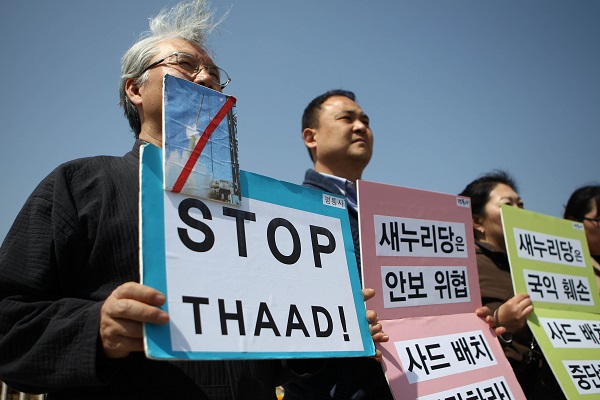

Follow us on:  
|


South Korean opposition protesters hold placards during a rally against the deployment of the advanced US missile defense system on the Korean Peninsula, called Terminal High-Altitude Area Defense (THAAD) [Xinhua]
US Secretary of Defence Jim Mattis, who just concluded a trip to Japan and South Korea, has said that the deployment of the Terminal High Altitude Area Defense system, or THAAD, is a response to North Korea’s recent ballistic missile tests.
As one of the most advanced missile defense systems in the world, THAAD can intercept and destroy ballistic missiles inside or just outside the atmosphere during their final phase of flight.
“There is no other nation that needs to be concerned about THAAD other than North Korea if they’re engaged in something that’s offensive,” Mattis said of a strategy he described as “extended deterrence.”
Despite claims by Washington and Seoul that the missile shield would be focused solely on North Korea, Moscow (and Beijing) says the US deployment would pose considerable threat to neighboring countries.
“We regard this as further efforts by Washington to create a new regional segment of the United States’ global missile defense in Northeast Asia near the Russian border,” Russia’s ambassador to Seoul, Aleksandr Timonin, told the Russian news agency TASS in an interview.
“This is a direct threat to the security of our country, because the main aim of the US global missile defense is to minimize the effectiveness of Russia’s missile potential,” he added.
China has also expressed concern saying THAAD deployment would spark a new ballistic arms race in the region.
China is urging neighbor Japan to work with regional powers to resolve the current crisis on the Korean Peninsula and not resort to unilateral actions with the help of outside parties.
The BRICS Post with inputs from Agencies